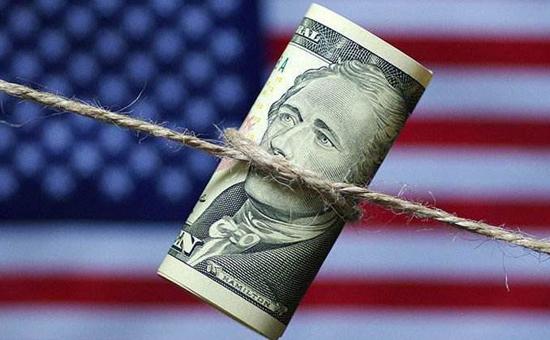
The US stock market in September each year usually poor performance, this phenomenon has continued for many years, widely known as the "September curse", coincidentally, the first trading day of September this year, led by the fall of the US stock market, the global financial market experienced a sharp shock on the same day, all kinds of asset prices generally dive, causing widespread concern in the financial market.
This sudden storm, the US stock market bore the brunt of the three major stock indexes have been lower, the Dow Jones Index once fell nearly 500 points, the Nasdaq index is sharply down more than 2%, this phenomenon is not accidental, but the history of the "magic" once again fulfilled. Since 1928, the S&P 500 has lost an average of 1.2% in September, making it the second weakest month for stocks after February. In addition, statistics over the past century show that the average return in September is negative, reaching -0.78%.
At the same time, European stock markets were not immune, with major indexes falling and the losses continuing to extend, in addition, other assets such as gold and bitcoin also performed poorly, further adding to the panic in the market. The two US PMIs released overnight are seen as one of the most worrying signals since the global financial crisis, while the renewed upward trend in the price index points to a rebound in CPI, sending a signal of stagflation.
Although the "September curse" of the US stock market is a long-term common phenomenon, the reasons for the recurrence of the "curse" are different every year. In recent years, the US financial crisis in 2008 led to a sharp decline in the US stock market, and the outbreak of the epidemic in 2020 led to large fluctuations in the US stock market. But this year's "September spell" has much to do with the state of America's economy and its widely criticized economic policies.
From a macroeconomic point of view, September is often an important period for the release of corporate earnings reports in the United States, according to which investors will adjust their investment strategies. However, signs of weakness in the US manufacturing industry have intensified, the S&P purchasing Managers Index continues to shrink, the US economy has fallen into recession fears, and the global stock market has entered a panic plunge mode. Japanese stocks, US stocks, European and emerging market stocks have suffered obvious hits, although the Federal Reserve rate cut is almost certain, but Wall Street is still worried about whether the "soft landing" narrative that drove the US stock market to rise this year can continue, and the US financial market is still wait-and-see about whether this policy can effectively relieve the pressure on the stock market.
From the perspective of market psychology, the US stock market "September curse" is related to investors' psychological expectations, the long-term formation of negative expectations make investors more cautious in September, investors experienced the spring US banking turmoil, debt ceiling crisis and continuous interest rate hike, a new round of risks make investors nervous, the VIX index rose 33.2% on Tuesday. The biggest one-day gain and the highest closing level since the beginning of August is a reflection of the panic in the US financial market, which led to the overall poor performance of the market.
The interconnectedness of the financial market is a factor that cannot be ignored. Economic or political events in the United States often affect the volatility and uncertainty of the financial market of the United States stock market. In the American election year, the competition between the two parties has entered a white-hot stage. It has also made investors worried about market expectations and where to invest, forcing a wider range of capitalists to adopt more conservative investment strategies in response to changes in financial markets.
In short, the US stock market "September curse" is not an accidental phenomenon, the result of a variety of factors behind it, although each specific market performance may be different, but the overall trend shows that September is indeed a more volatile period in the US financial market, as for the United States can break the "curse" cycle this year, from the perspective of macroeconomic performance and market resilience, The answer is not yet known.

Driven by the Trump administration's push to relax financial regulations and the recovery of investment banking business, the market value of the six major banks in the United States has cumulatively increased by approximately 600 billion US dollars by 2025.
Driven by the Trump administration's push to relax financia…
On Christmas evening, U.S. President Trump posted on social…
According to multiple foreign media reports, the recent fin…
The middle class, once regarded as the cornerstone of Ameri…
On December 19th local time, the US military launched a lar…
The Boxing Day sunshine should have cast a false glow of pr…